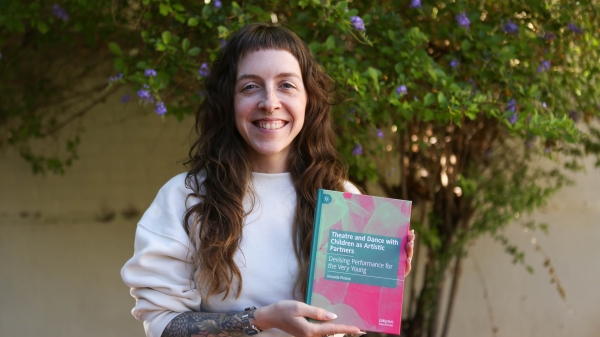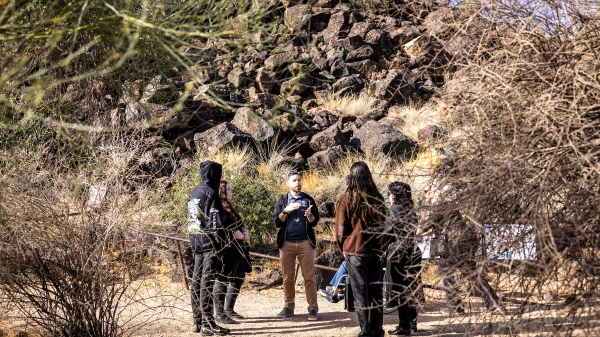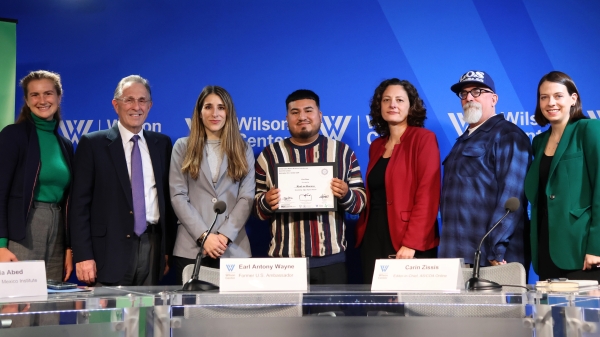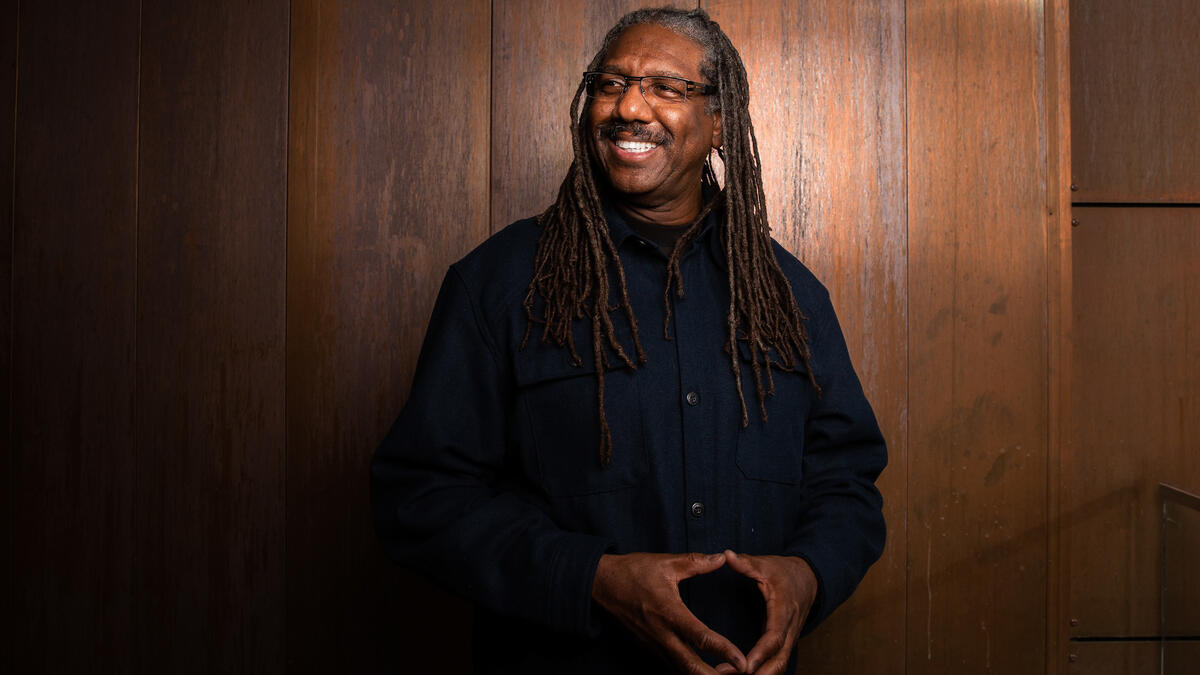Neal Lester has never cared much about awards.
Recognition is not why he founded Arizona State University’s Project Humanities, which brings together individuals and communities within and around ASU to talk about issues like diversity, equity and justice.
But Lester will admit he was touched when Project Humanities recently was given a Bronze Award from Anthem Awards, which honors movements, organizations and individuals that spark social change.
Project Humanities received its Bronze in the category of “Community Engagement” for nonprofits. Two of the ASU initiative's signature events are Service Saturdays, a twice-monthly event where volunteers distribute clothing, shoes and toiletries to the homeless, and Hacks for Humanity, a global, 36-hour event in which participants create technical solutions for the social good.
ASU News talked to Lester about the Anthem Award, which is sometimes called “the internet’s highest honor.”
Editor's note: The following interview has been edited for length and clarity.
Question: First of all, congratulations. What does this award mean to you?
Answer: I have a weird thing about awards because awards are very political, so I’m a little bit skeptical. We have received awards, but I see awards as validation of the work that we’re doing. We don’t just consciously go out trying to apply for every award. When we do self-nominate, it’s an opportunity to let other people know what we’re doing so that we can have a bigger platform and potentially attract more resources, more visibility and improve our impact. We do what we’re doing. We didn’t do anything special. We bring people together to have these community conversations.
Q: You are in pretty good company: Doctors Without Borders, Jane Goodall and Gabrielle Giffords also have won Anthem Awards.
A: It’s galaxy stuff. It actually feels a little bigger than I thought it was. We didn’t get the gold, but I keep saying we were at the Olympics with the big fish and somebody saw us worthy to acknowledge what we’re doing. That’s both humbling and kind of exciting because more people will see our website.
Q: For those who don’t know what Project Humanities is, how would you describe what the organization does?
A: What we do is bring people together — communities and individuals — and offer a little TLC: talking, listening and connecting. Within that umbrella, we focus on issues of justice, issues of diversity and issues of equity. Since George Floyd’s murder in May of 2020, we have very consciously connected to Humanity 101 principles to issues of justice. It seems to me there’s no reason that we can’t talk about humanity as central to justice in the same way that we talk about innovation and creativity as central to our identity as a New American University. So the fact that President (Michael) Crow has given us a space where we could sort of realize that means we are doing all kinds of things, and the format is as diverse as the people that we try to respond to.
Q: You’re the face of Project Humanities, but the award also mentioned your team: Rachel Sondgeroth, program manager; Gregory Broberg, ASU faculty ambassador; and student worker Brekken Cogswell. How important are they to you?
A: They’re essential in what we do. You can’t have a body with just a head. The body has to have other moving parts to make it operate. One of the things we’ve always said is that there is no success without collaboration.
Top photo: Neal Lester, Foundation Professor of English and founding director of Project Humanities at Arizona State University. Photo by Deanna Dent/ASU
More Arts, humanities and education

ASU professor explores theater, dance for young children in new book
Arizona State University Assistant Professor Amanda Pintore believes in the artistic capacity of very young children. She's hoping to spread that awareness to others with the recent publication of…

Petroglyph preserve celebrates 30th anniversary with ancient, modern tales
The Deer Valley Petroglyph Preserve provides a beautiful walk through a pristine desert where chuckwalla lizards are as plentiful as the cacti that comes in many shapes and sizes.It’s also a step…

Kaleidoscope short film contest inspires powerful binational filmmaking in its second year
“We come to this country not to steal anybody’s jobs but to take advantage of the opportunities that the rest ignore. We’ve been taking care of the American soil for many years. But our hands will…
